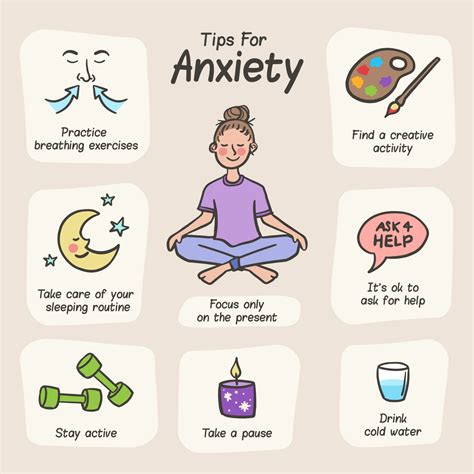Have you ever experienced the peculiar sensation of tumbling down from great heights in your dreams, only to jolt awake feeling a mix of confusion and anxiety? This inexplicable phenomenon, far from being a mere figment of our imagination, has long intrigued and puzzled dream analysts and psychologists alike.
Beneath the surface of this recurrent dream scenario, lies a rich tapestry of symbolism and meaning, waiting to be unraveled. It serves as a window into the depths of our subconscious, offering valuable insights into our daily lives, fears, and aspirations. With every descent, our psyche navigates a labyrinth of emotions, providing us with an opportunity to better understand ourselves.
Throughout history, falling dreams have been associated with various interpretations across cultures. Some view them as metaphors for a loss of control or power, while others perceive them as harbingers of impending failure and insecurity. These interpretations, however, fail to capture the nuanced intricacies and individuality behind each person's experience.
Unveiling the Symbolism: What Does Falling Represent in Dreams?

Delving into the mysterious realm of dreams, it is fascinating to explore the profound symbolism behind the act of falling in these nocturnal visions. Far beyond a simple descent from a higher position to a lower one, falling in dreams embodies a multitude of symbolic meanings that resonate deep within the subconscious mind.
1. Vulnerability and Loss of Control: In the realm of dreams, falling can symbolize a profound sense of vulnerability and the loss of control over aspects of one's life. These dreams may arise during times of uncertainty or when facing overwhelming circumstances, reflecting a perceived lack of power or agency in navigating life's challenges.
2. Fear and Anxiety: Falling dreams often manifest as a reflection of inner fears and anxieties. The sensation of helplessness and the sense of impending doom associated with falling can mirror the anxieties experienced in waking life, such as the fear of failure, the fear of the unknown, or the fear of making the wrong choices.
3. Transition and Change: Falling dreams can also signify a significant transition or change in one's life journey. Just as autumn leaves gracefully descend from trees, dreams of falling may serve as metaphors for necessary endings or the shedding of old habits, paving the way for personal growth and transformation.
4. Surrender and Letting Go: Falling in dreams can be interpreted as a symbolic act of surrender and relinquishing control. It can represent the need to release attachments, expectations, or unhealthy patterns, allowing oneself to surrender to the natural flow of life and trust in the guidance of the universe.
5. Self-Reflection and Self-Discovery: As dreams provide a mirror into the depths of one's psyche, falling dreams can serve as invitations for self-reflection and self-discovery. They prompt individuals to explore their deepest fears, vulnerabilities, and unresolved emotions, offering an opportunity for personal growth and self-awareness.
In conclusion, falling dreams hold a rich tapestry of symbolism, embracing themes of vulnerability, fear, transition, surrender, and self-reflection. By deciphering the hidden meanings behind these dreams, individuals can gain a deeper understanding of their inner psyche and embark on a journey of self-discovery and personal transformation.
The Psychological Perspective: Exploring the Analysis of Descending Dreams
In this section, we will delve into the intriguing realm of the psychological analysis behind dreams characterized by descending experiences. By examining the depths of the human psyche, we aim to unravel the intricate symbolism and hidden meanings that lie within these unique nocturnal visions.
The psychological perspective offers valuable insights into the interpretation of dreams portraying the act of falling. Through a comprehensive exploration of various theories and principles rooted in psychoanalysis, cognitive psychology, and neuroscience, we seek to shed light on the underlying psychological significance of these dreaming experiences.
By analyzing the metaphorical concepts of descent, we unveil the subconscious implications associated with falling dreams. The notion of descending can signify feelings of loss of control, vulnerability, or powerlessness. It may manifest as a reflection of unresolved conflicts, uncertainties, or insecurities present in an individual's waking life.
Furthermore, diving into the symbolism of falling dreams can unveil core psychological concepts such as fear, anxiety, and the human experience of emotional vulnerability. It provides an opportunity to explore the subconscious mind and gain a deeper understanding of our innermost thoughts, fears, and desires that shape our waking existence.
Through the lens of various psychological perspectives, we will closely examine the different aspects of falling dreams, including their recurring nature, emotions associated with the descent, and potential psychological parallels. By doing so, we aim to equip readers with a comprehensive toolkit to interpret and analyze falling dreams from a psychological standpoint, enhancing their self-awareness and understanding of their own subconscious mind.
Falling as a Metaphor: Analyzing the Deeper Significance of Dreaming About Descending

When we experience vivid dreams of descending, we often perceive them as a reflection of our fears, insecurities, or feelings of losing control. This fascinating phenomenon serves as a metaphor for various aspects of our lives, allowing us to delve deeper into our subconscious and explore the hidden meanings behind these dreams.
Symbolic representations: Just as the act of falling represents a physical descent, within the realm of dreams, it can represent a multitude of symbolic concepts. These could include emotional instability, a fear of failure, or even a sense of being overwhelmed by life's challenges. By unraveling the underlying metaphors in our dreams of falling, we can gain valuable insights into our psyche. | Escaping reality: When we find ourselves dreaming about descending, it can signify a desire to escape from reality or avoid facing certain aspects of our lives. The act of falling in the dream state may act as a coping mechanism, allowing us to detach from our worries and concerns momentarily. Understanding this metaphorical representation can encourage us to confront our fears constructively. |
Evaluating control: As we plummet in dreams, we often experience a loss of control, mirroring real-life situations where we feel powerless or unable to influence the outcome. These dreams can act as a reminder to reflect on the levels of control we possess in various aspects of our lives, helping us identify areas where we can regain autonomy and make positive changes. | A call for self-reflection: Through the metaphor of falling in dreams, our subconscious invites us to engage in self-reflection and introspection. It may be an opportunity to confront unresolved emotions or past traumas that continue to impact our well-being. By embracing this symbolism, we can embark on a journey of personal growth and healing. |
In conclusion, dreams of descending serve as powerful metaphors that offer a window into our deepest thoughts and emotions. By analyzing the symbolic representations, exploring our desire to escape reality, evaluating our sense of control, and engaging in self-reflection, we can unlock the deeper significance of dreaming about falling and use it as a catalyst for personal development.
Identifying Possible Triggers: Exploring the Potential Causes of Reoccurring Dreams featuring Falling Sensations
In this section, we delve into the common triggers behind recurring dreams that involve the sensation of falling. By examining the underlying factors that may be contributing to these dreams, we can gain a better understanding of why they occur.
One possible trigger for recurring falling dreams can be attributed to stress and anxiety. When individuals experience high levels of stress or anxiety in their waking lives, it can manifest in their dreams as a sensation of falling. These dreams may reflect a subconscious fear of losing control or a feeling of being overwhelmed by life's challenges.
Another potential cause of recurring falling dreams is related to feelings of insecurity or a lack of stability. Individuals who are going through uncertain times or facing significant changes in their lives may find themselves frequently dreaming about falling. These dreams can symbolize a fear of failure or a sense of vulnerability in the face of uncertainty.
Additionally, recurring falling dreams can be linked to a fear of letting go or losing one's sense of self. These dreams often occur when individuals are grappling with difficult decisions or struggling to detach themselves from certain situations or relationships. The sensation of falling signifies an internal struggle between holding on and the need to move forward.
Furthermore, physical sensations experienced while sleeping can also contribute to recurring falling dreams. For instance, if individuals are sleeping in an uncomfortable position or have a sleep disorder that causes them to fall out of bed, their subconscious mind may incorporate these sensations into their dreams, resulting in dreams of falling.
Recurring falling dreams can serve as a natural response to various psychological and emotional factors. By identifying the possible causes behind these dreams, individuals can begin to explore and address the underlying issues that may be causing them. It is essential to remember that dream interpretations are subjective and can vary from person to person.
The Physical Connection: How Sleep Disorders and Tumbling Dreams are Correlated

Exploring the intricate link between sleep disorders and recurrent dreams of tumbling can provide valuable insights into the human mind and body. Sleep disorders, characterized by disturbances in the sleep pattern, have been found to be connected to the occurrence of falling dreams. By delving into the physiological aspects of sleep disorders, a better comprehension of the relationship between these conditions and the unsettling dreams they induce can be attained.
The human body is a complex system, and disruptions in its normal functioning can manifest as sleep disorders. In turn, these sleep disorders can trigger a cascade of effects that influence the content and intensity of dreams. The connection between sleep disorders and falling dreams could be attributed to various factors, such as sleep fragmentation, restless leg syndrome, sleep apnea, and insomnia. Each of these sleep disorders affects different aspects of sleep, leading to an altered dream experience.
- Sleep Fragmentation: A condition where individuals experience frequent awakenings throughout the night, disrupting the natural sleep cycles. This can result in fragmented dreams, including falling sensations.
- Restless Leg Syndrome (RLS): RLS is characterized by an irresistible urge to move the legs, often occurring during periods of rest. The discomfort caused by RLS can interrupt sleep patterns, leading to recurring dreams of falling.
- Sleep Apnea: This disorder involves pauses in breathing during sleep, causing interrupted sleep patterns. The associated oxygen deprivation can lead to vivid and intense dreams, including those centered around falling.
- Insomnia: Difficulty falling asleep and maintaining sleep can result in sleep deprivation. This, in turn, can influence the dream state and produce dreams related to falling.
It is important to note that not all individuals with sleep disorders will experience falling dreams, and not all dreams of falling are indicative of an underlying sleep disorder. However, the correlation between these conditions highlights the relationship between the physical aspects of sleep and the content of our dreams.
Understanding the connection between sleep disorders and recurring dreams of falling can open avenues for further research in the field of dream analysis and sleep medicine. By delving into the physical aspects of sleep disorders, a deeper understanding of the mechanisms behind these dreams can be obtained, leading to potential interventions and treatments for individuals experiencing disruptive sleep patterns and recurring falling dreams.
Cultural Variations: Exploring the Diverse Perspectives on Falling Dreams among Different Societies
Within the realm of dream analysis, the diverse interpretations of falling dreams are fascinating to explore, particularly when considering the cultural variations that shape our perceptions. By delving into the unique beliefs and traditions of different societies, we can gain a deeper understanding of how falling dreams are perceived and deciphered across various cultures.
Across the globe, falling dreams are not merely viewed as simple nocturnal experiences; rather, they carry significant cultural implications that influence their interpretation. In some cultures, these dreams symbolize a loss of control or an impending downfall, while in others, they may signify transformation, personal growth, or even rebirth. The rich tapestry of cultural interpretations surrounding falling dreams highlights the profound impact that cultural norms, values, and beliefs have on our understanding of ourselves and the world around us.
For example, in certain Eastern societies, falling dreams are associated with the concept of impermanence and the transient nature of life. These cultures often interpret such dreams as reminders to appreciate every moment and to embrace change, as the act of falling symbolizes the ephemerality of existence. In contrast, Western cultures tend to associate falling dreams with vulnerability and insecurity, suggesting feelings of powerlessness or fear of failure.
Furthermore, indigenous cultures often view falling dreams within the context of their spiritual traditions. The interpretation of these dreams varies greatly among different indigenous communities, with some considering them as auspicious signs or messages from ancestors, while others perceive them as warnings or divine signals. The differing interpretations highlight the spiritual and mystical dimensions that shape the understanding of falling dreams in indigenous cultures.
In addition to spirituality, the psychological perspective also influences the interpretation of falling dreams across cultures. Psychoanalytic theories, for instance, conjecture that falling dreams may represent feelings of inadequacy or unresolved anxieties. These theories can be found in various cultural settings, suggesting that the psychological dimension of dream interpretation transcends cultural boundaries.
Examining the multifaceted nature of falling dream interpretations across cultures not only enhances our appreciation for cultural diversity but also underscores the complexity of human consciousness. With each culture offering a unique lens through which to view falling dreams, we are reminded of the vastness of human experience and the profound effects of cultural context on our subjective understanding of dreams and their meanings.
Conquering Fear: Effective Strategies for Handling Anxiety-Inducing Plunge Nightmares

Embarking on a journey to overcome the deep-rooted fear that accompanies falling dreams can be a daunting task. These recurring nightmares can trigger intense anxiety and a sense of helplessness. However, by implementing specific techniques and adopting a proactive mindset, individuals can successfully navigate through the unsettling emotions that arise from these experiences.
1. Cultivate self-awareness: Understanding the underlying emotions and triggers associated with falling dreams is crucial in managing the anxiety they cause. Taking note of any patterns or emotional connections can provide insight into the subconscious fears that may be at play.
2. Challenge negative thoughts: When confronted with the overwhelming fear induced by falling dreams, it is important to question the validity of the thoughts and assumptions that emerge. Remind yourself that dreams do not always reflect reality and that the emotions experienced during sleep do not necessarily correspond to waking life.
3. Develop relaxation techniques: By incorporating relaxation exercises such as deep breathing, progressive muscle relaxation, or meditation into your daily routine, you can cultivate a sense of inner calmness and control that will extend to your dreamscape. These practices can help alleviate anxiety and promote restful sleep.
4. Seek support: Sharing your experiences with trusted individuals can provide both emotional validation and alternative perspectives. Whether it be a close friend, family member, or therapist, discussing your fears and anxieties can help ease the burden and provide valuable insights for coping with falling dreams.
5. Reinforce positive affirmations: Affirmations can be an effective tool in reprogramming the mind to promote positive thoughts and emotions. By regularly affirming statements such as "I am safe and in control" or "I release fear and embrace peace," individuals can gradually reduce the anxiety associated with falling dreams.
6. Engage in creative outlets: Expressing your emotions and fears through creative outlets such as writing, painting, or dancing can be cathartic and empowering. By externalizing your experiences, you can gain a sense of control over them and lessen their impact on your overall well-being.
In conclusion, while falling dreams may evoke anxiety and fear, it is possible to overcome these emotions through self-awareness, positive affirmations, relaxation techniques, and seeking support. By actively engaging in strategies to manage anxiety-inducing nightmares, individuals can regain a sense of control and ultimately transform these dreams into sources of personal growth and empowerment.
Harnessing the Power of Descending Dreams: Utilizing Dream Analysis for Personal Growth and Self-Reflection
The experience of descending dreams holds great potential for personal development and introspection. By delving into the intricate imagery and symbolism present in these dreams, individuals can unlock valuable insights and cultivate a deeper understanding of themselves.
Exploring the Depths:
Descending dreams offer a unique perspective on the inner workings of our subconscious mind. Through dream analysis, we can navigate the symbolic landscapes of these dreams, uncovering buried emotions, fears, and desires that may lie dormant within us. These dreams act as a gateway, providing an opportunity to explore our hidden depths and confront unresolved issues.
Unraveling Symbolism:
In the enigmatic realm of descending dreams, symbolism takes center stage. From the sensation of free falling to the surrounding environment and the presence of specific objects or characters, each element in these dreams offers profound meaning. Learning to decode this symbolism allows us to decipher the subconscious messages embedded in our dreams, providing invaluable insights for personal growth.
Encountering Fear and Insecurity:
Falling dreams often trigger feelings of fear and insecurity, reflecting the anxieties and uncertainties we may face in waking life. By actively engaging with these dreams and courageously exploring the emotions they elicit, we can confront and overcome our deepest fears. Through this self-reflection, we not only gain a sense of empowerment but also develop resilience to face challenges in our waking lives.
Transforming Challenges into Opportunities:
Descending dreams present an opportunity to transform perceived setbacks into catalysts for growth. By embracing the lessons these dreams offer, we can cultivate a deeper sense of self-awareness and adaptability. Harnessing the power of dream analysis allows us to gain new perspectives, reframe obstacles as opportunities, and navigate life's complexities with a greater understanding of our own personal journey.
In conclusion, harnessing the power of descending dreams through dream analysis enables us to embark on a transformative journey of personal growth and self-reflection. By exploring the depths of our subconscious, unraveling the symbolism, confronting fears, and transforming challenges into opportunities, we can unlock our true potential and lead a more fulfilling life.
FAQ
Why do I keep dreaming about falling?
There can be various reasons as to why you keep dreaming about falling. It could be linked to feelings of insecurity, loss of control, or a fear of failure in your waking life. Dreams about falling can also signify a lack of support or stability in your life. It is important to analyze your current situation and emotions to understand the specific meaning behind these recurring dreams.
What does it mean if I have a dream about falling but I never hit the ground?
If you have a dream about falling but never hitting the ground, it could symbolize a feeling of uncertainty or instability in your life. It may indicate that you are in a transitional phase or facing a challenging situation where you fear the consequences. This dream could be a reflection of your anxiety or fear of the unknown. It is important to examine your emotions and circumstances to gain a deeper understanding of what this dream represents for you personally.
Is there any physiological explanation for dreaming about falling?
While dreams are primarily a result of our thoughts, emotions, and experiences, there may be some physiological factors that can contribute to dreaming about falling. It is believed that changes in blood pressure or heart rate during sleep can influence the content of our dreams. Additionally, physical sensations like a falling sensation during sleep, also known as a hypnagogic jerk, can manifest as dreams about falling. However, the exact physiological explanation for dreaming about falling is still not fully understood and is a topic of ongoing research.



